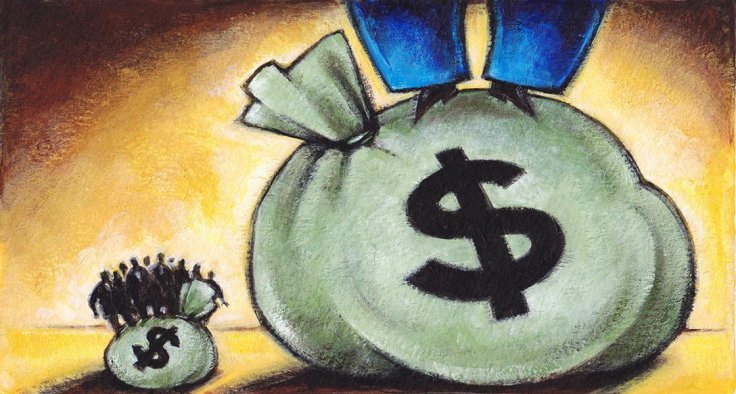The Nairobi-headquartered charity organization, Oxfam, released a report on Monday, highlighting the dire condition of economic inequality, which also has the potential to transcend into social and political inequality. According to the report, 2,153 of the world's billionaires hold more wealth than '4,600,000,000' of the world's poor combined.
Economic inequality
The organization released its report on January 20, Monday, ahead of the annual World Economic Forum to be held from January 21-24 at Davos, Switzerland. The richest of the rich will assemble at the gathering.
According to the report, the number of billionaires has doubled in the last decade. "Our broken economies are lining the pockets of billionaires and big business at the expense of ordinary men and women. No wonder people are starting to question whether billionaires should even exist," said, Amitabh Behar, CEO of Oxfam India, who is in Davos to represent the Oxfam confederation this year.
Gender inequality
In it's 'Time to Care' report highlighting gender inequality, the organization has concluded that 'the 22 richest men in the own more wealth than all African women combined'.
According to the report, women and girls put in '12,500,000,000 hours' of unpaid work each day. This amount of work equals an addition of $10.8 trillion/year, which is thrice the size of the world's tech sector.

3/4th of the total unpaid work is done by women the report said. Often, they have to drop out of the workforce because of their care workload. According to the report, 42 percent of working-age women and just 6 percent of men can not get jobs because they are responsible for all the caregiving.
"Women and girls are among those who benefit least from today's economic system. They spend billions of hours cooking, cleaning and caring for children and the elderly. Unpaid care work is the 'hidden engine' that keeps the wheels of our economies, businesses and societies moving. It is driven by women who often have little time to get an education, earn a decent living or have a say in how our societies are run, and who are therefore trapped at the bottom of the economy," Behar said.
To highlight the level of inequality in the global economy, Behar cited the case of a woman called Buchu Devi in India who spends 16-17 hours a day doing work like fetching water after trekking 3km, cooking, preparing her children for school and working in a poorly paid job. "And on the one hand you see the billionaires who are all assembling at Davos with their personal planes, personal jets, super-rich lifestyles," he said. Again, there is not just one Buchu Devi, but millions around the world.
Is there a solution?
According to the report, if the richest 1 percent pay 0.5 percent more tax on their wealth, over the next 10 years, the wealth generated would equal the investment needed to create 117 million jobs in sectors such as the elderly and childcare, education and health.









